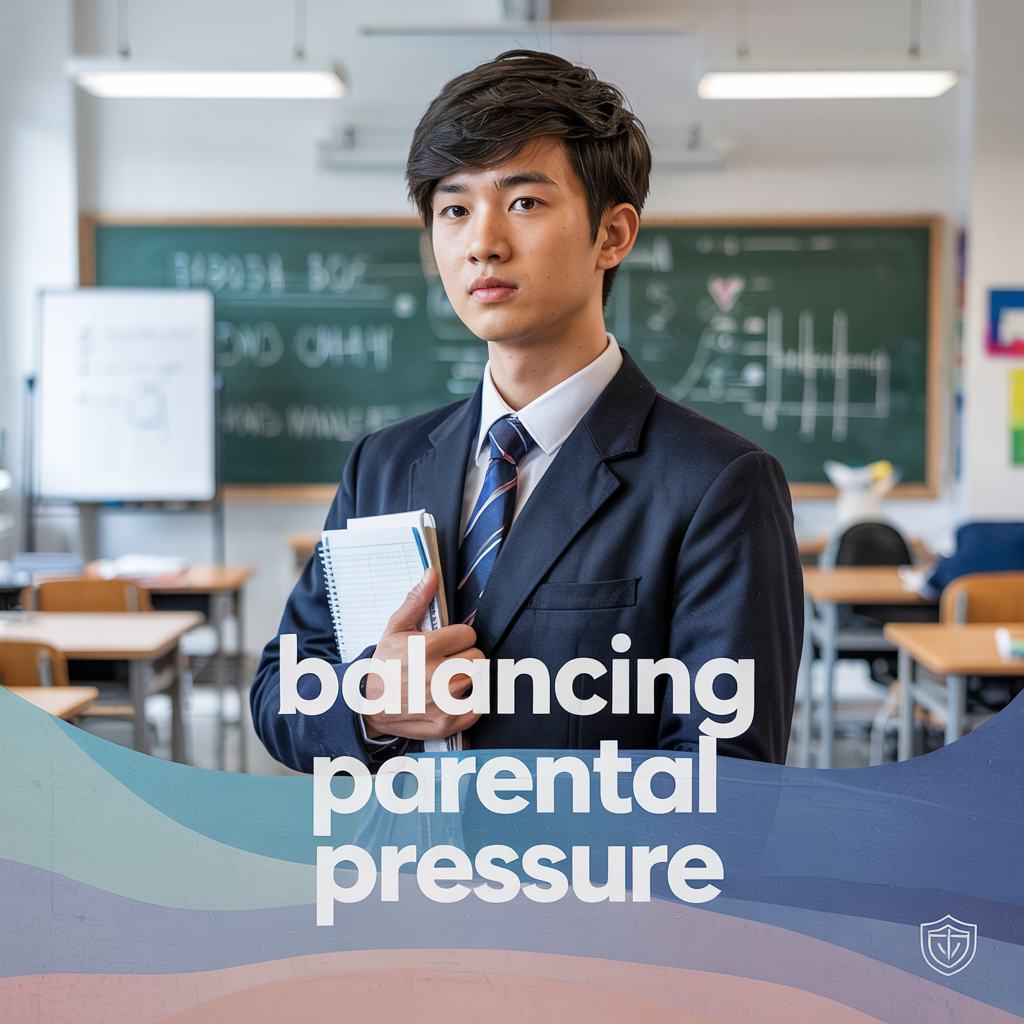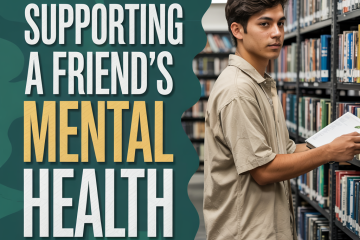Navigating Family Expectations & Mental Health: Finding Balance & Communicating Needs

Parents usually want what’s best for their kids — and that often comes with high hopes and expectations, especially around school and future success. But sometimes, those expectations can turn into intense pressure, causing stress that affects both your mental health and your relationship with family.
Learning how to navigate parental pressure, communicate your needs clearly, and find a healthy balance is crucial for protecting your well-being during high school.
Love and Expectations: The Family Dynamic
Most parents’ expectations come from a place of love and a desire to see you succeed. They might recognize your potential, hope to give you opportunities they didn’t have, or believe certain paths lead to a secure future.
While their approach may sometimes feel overwhelming, understanding their intentions can help you better navigate the family pressure that often comes with high school.
👉 Want to show your strengths beyond just grades? Build your student profile on Cirkled In and let your talents speak.
When Expectations Become Unhealthy Pressure
Expectations cross the line into unhealthy pressure when they become:
- Unrealistic: Far beyond your current abilities or genuine interests.
- Constant and Intense: Leading to chronic stress and anxiety.
- Overly Focused on Outcomes: Emphasizing only grades, rankings, or specific college acceptances, ignoring effort or well-being.
- Controlling: Dictating your choices (classes, activities, major) without considering your input.
- Critical or Judgmental: Making you feel like you’re never good enough.
This kind of pressure can seriously disrupt the balance between family expectations and mental health.
Impact on Your Mental Health
Constant, intense parental pressure can lead to:
- Anxiety and stress disorders.
- Perfectionism and fear of failure.
- Burnout.
- Low self-esteem or feelings of inadequacy.
- Difficulty making decisions for yourself.
- Strained family relationships.
- Loss of genuine interest in learning.
Prioritizing balancing parent expectations and your well being is essential.
Strategies for Finding Balance
Navigating this requires communication and self-awareness:
Understand Their Perspective (and Yours)
- Try to See Their View: Why do they have these expectations? Are they based on their own experiences, fears, or hopes?
- Clarify Your Own Goals/Values: What is truly important to you? What are your interests and strengths? What does success look like for you?
Practice Open and Honest Communication
- Choose the Right Time/Place: Find a calm time when you won’t be rushed or interrupted to talk to parents about stress causes.
- Use “I Feel” Statements: Express your feelings without blaming. “I feel really stressed when we only talk about my grades,” instead of “You’re putting too much pressure on me.” This helps in communicating needs parents might understand better.
- Be Specific: Explain how the pressure affects you (“When I feel this much pressure, I have trouble sleeping/concentrating.”).
- Listen to Their Response: Try to understand their concerns too.
Focus on Effort and Growth, Not Just Outcomes
- Share what you’re learning and the effort you’re putting in, not just the final grade.
- Talk about challenges you’re overcoming and skills you’re developing.
- Help shift the conversation towards progress and learning.
Set Healthy Boundaries (Respectfully)
- If needed, set limits on how often or when you discuss grades or college apps. “Can we talk about college applications just on Sundays?”
- Communicate your need for downtime or time for non-academic interests.
- Learn to say “no” politely to excessive demands if possible.
Seek External Support If Needed
- School Counselor: They can offer coping strategies and might even help facilitate conversations with your parents if needed.
- Other Trusted Adult: A teacher, coach, relative, or therapist can provide perspective and support.
Need a space to organize achievements, interests, and extracurriculars stress-free? Create your free profile on Cirkled In — it’s made for students like you.
Final Thought: Your Well-being Matters Most
Navigating parental pressure and managing the tension between academics and mental health takes ongoing effort. Focus on open communication, try to understand different perspectives, and work toward a healthy balance.
Remember to prioritize your well-being and talk to your parents about the stress you’re feeling — using “I” statements can really help. It’s absolutely possible to respect your family’s hopes while also honoring your own needs and boundaries.
Need more tips on academics and your overall well being? Cirkled In has your back—check out Cirkled In resources to help you through every step of your college journey!



14 Comments
Stephen · July 10, 2025 at 6:00 pm
This article nails the delicate art of balancing family expectations with personal goals. The advice on open communication, setting boundaries, and time management is incredibly practical and relatable. It’s easy to get lost in trying to please everyone, but realizing that compromise and seeking support can help maintain harmony while still pursuing what matters to you is key. It’s a great reminder that it’s possible to stay true to your personal aspirations without sacrificing your relationships. A must-read for anyone navigating this challenge!
Amy S · July 15, 2025 at 12:39 pm
Thank you for your thoughtful feedback, Stephen! We’re glad the article resonated with you. Finding that balance isn’t easy, and it’s great to hear these tips felt relatable and helpful.
rocky · August 11, 2025 at 9:12 am
i feel motivated and educated
Amy S · August 12, 2025 at 1:06 pm
That’s exactly what we love to hear, Rocky! 💡💖 Feeling both motivated and educated is the perfect combo for taking positive steps forward. Keep nurturing that balance—you’ve got this! 🌱✨
Michelle Esha · September 6, 2025 at 11:11 am
i need a scholarship
Amy S · September 8, 2025 at 11:45 am
Thanks for sharing, Michelle! 🌟 If you’re looking for scholarships, you’re in the right place. Check out the Cirkled In Scholarship — it’s free to apply and designed just for students like you. You’ll also find plenty of other resources in our library to help you discover opportunities that fit your goals. You’ve got this!
Arnold · September 24, 2025 at 12:21 am
Good
Amy S · September 24, 2025 at 10:17 am
Glad you liked it, Arnold! 💙 Finding that balance isn’t easy, but so important—thanks for reading!
Kaelen Drosen · October 6, 2025 at 4:06 am
Impressive
Amy S · October 7, 2025 at 8:54 am
Appreciate that, Kaelen! 🙌 Glad you found it impressive — these conversations around family and mental health really matter
Amanda Gray · November 27, 2025 at 4:50 am
I really enjoyed this article and found the tips super helpful!
Amy S · December 8, 2025 at 11:44 am
Love hearing that, Amanda! 😊 Finding balance isn’t always easy, but a little guidance goes a long way. Thanks for sharing your thoughts!
Ummi ali · December 17, 2025 at 12:02 am
A good
Amy S · December 29, 2025 at 3:12 pm
Thanks, Ummi ali! 😊 Balancing family expectations and mental health is no small feat—glad you found it helpful!